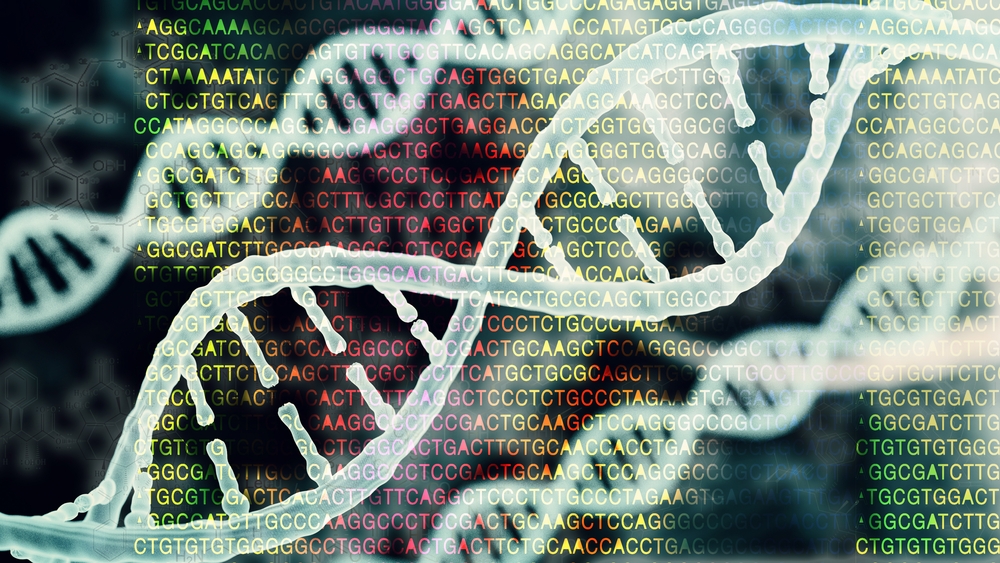Genetic Features May Help Slim People Maintain Their Weight, Study Suggests

A person’s thinness, like obesity, is a heritable trait linked to multiple genes, and slimmer people carry fewer genetic variants that increase the risk for obesity, a new study shows.
The study, “Genetic architecture of human thinness compared to severe obesity,” was published in the journal PLOS Genetics.
The obesity incidence rate is rising because of factors including high-calorie diets and reduced physical activity. But genetic factors also play a key role.
Studies performed on people with severe obesity show rare variations in genes related to neural pathways that control how the body uses energy. Until now, over 250 sites in human chromosomes have been associated with obesity.
A team led by researchers at England’s Cambridge University wondered whether genes that influence obesity similar to those that influence thinness. The team asked, “Are these two clinically ascertained traits reverse sides of the same coin?”
Previous genome-wide association studies proposing thinness to be a heritable trait have used few thin subjects as controls, or only compared their gene sequences with severely obese people.
In this new study named STILTS (Study Into Lean and Thin Subjects), researchers analyzed a cohort of persistently thin adults (defined as a body mass index of less than 18 kg/m2) of European descent. These subjects were healthy, without any medical conditions or eating disorders.
The majority of those in the STILTS cohort (74%) “have a family history of persistent thinness throughout life,” suggesting a genetically driven thinness, researchers noted.
The team recruited 1,622 individuals from the STILTS cohort, along with 1,985 subjects with severe childhood onset obesity (from the European ancestry GOOS cohort), and 10,433 controls (with normal weight). The genome of all subjects was analyzed based on saliva samples.
After quality control of the DNA, 1,471 thin subjects, 1,456 obese, and 6,460 control subjects were evaluated in further analysis.
Results showed that from a subset of 1,197,969 genetic variants found through genome analysis, 32.33% were associated with severe early onset obesity, whereas 28.07% were associated with persistent thinness. According to the team, this means that both obesity and thinness are likely similarly heritable.
Researchers then explored how these results correlated with 97 specific genetic markers previously associated to BMI (body mass index) in the GIANT cohort — an international collaboration study on the genetic traits that shape human body size, including height and obesity.
Results showed that the genetic variances for thinness were not a mirror for the ones found in obesity.
In fact, researchers identified some genetic traits that were almost exclusively associated with thinness, as in the CADM2 gene. Other genes, such as MC4R, had effects across the entire BMI range.
“As anticipated, we found that obese people had a higher genetic risk score than normal-weight people, which contributes to their risk of being overweight. The genetic dice are loaded against them,” Inês Barroso, at the Wellcome-MRC Institute of Metabolic Science and an author of the study, said in a press release.
The comparison between BMI-associated genes and obesity or thinness also led to the detection of other genetic traits, such as variants in the PKHD1 gene, previously reported to be associated with waist and hip circumference. They also detected significant differences in the FAM150B and PRDM6-CEP120 genes, which had previously been reported in very large sample sizes.
“This research shows for the first time that healthy thin people are generally thin because they have a lower burden of genes that increase a person’s chances of being overweight and not because they are morally superior, as some people like to suggest,” said Sadaf Farooqi of the Wellcome-MRC Institute of Metabolic Science, University of Cambridge, and the study’s lead author.
“It’s easy to rush to judgment and criticize people for their weight, but the science shows that things are far more complex. We have far less control over our weight than we might wish to think,” Farooqi said.
The team believes that targeting specific genes could be used as a new weight-loss strategy.
“Further genetic and phenotypic studies focused on persistently thin individuals may provide new insights into mechanisms regulating human energy balance and may uncover potential anti-obesity drug targets,” the researchers concluded.
The study was funded by the European Research Council and the Wellcome-MRC Institute of Metabolic Science.




